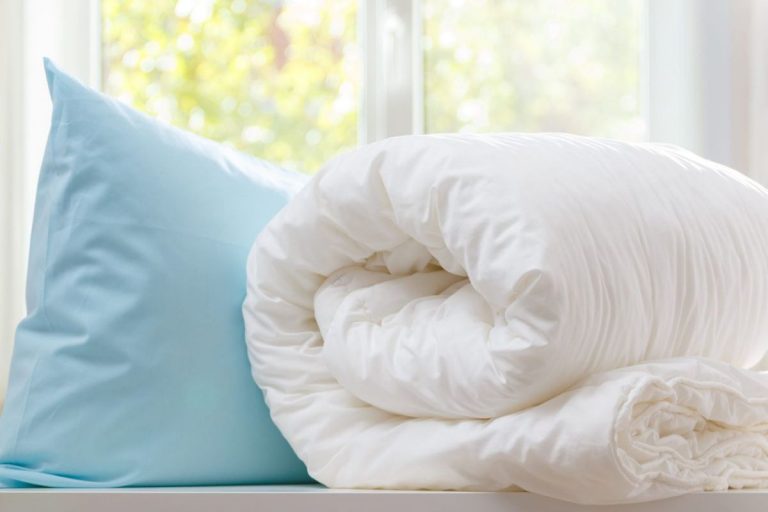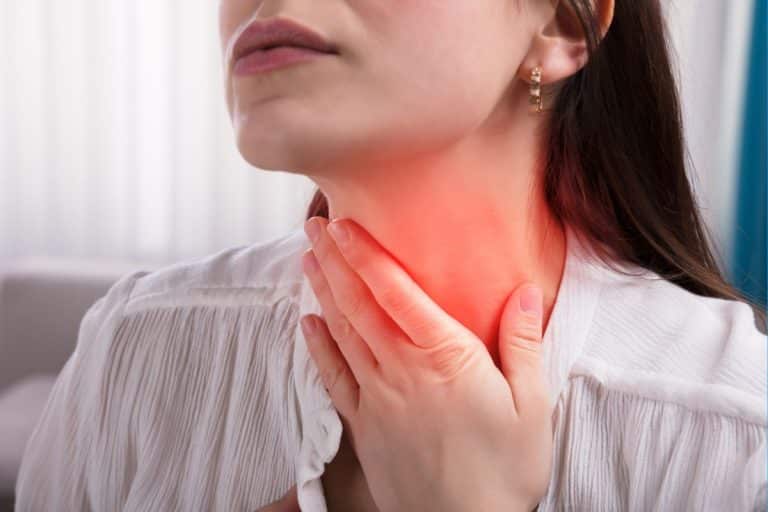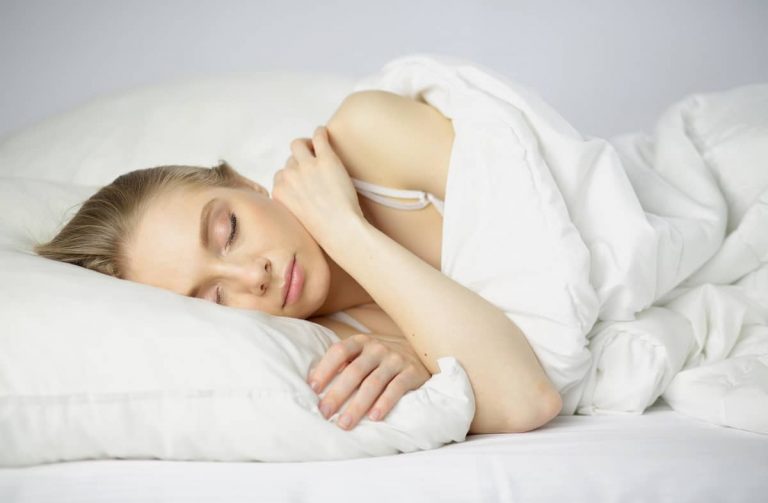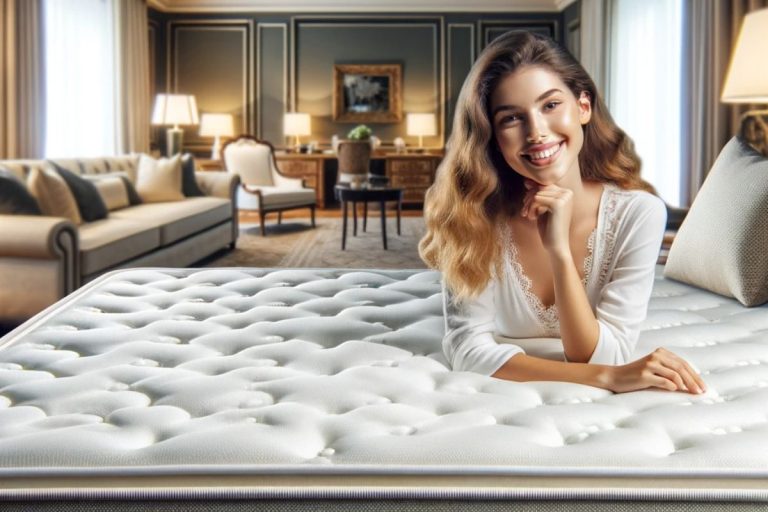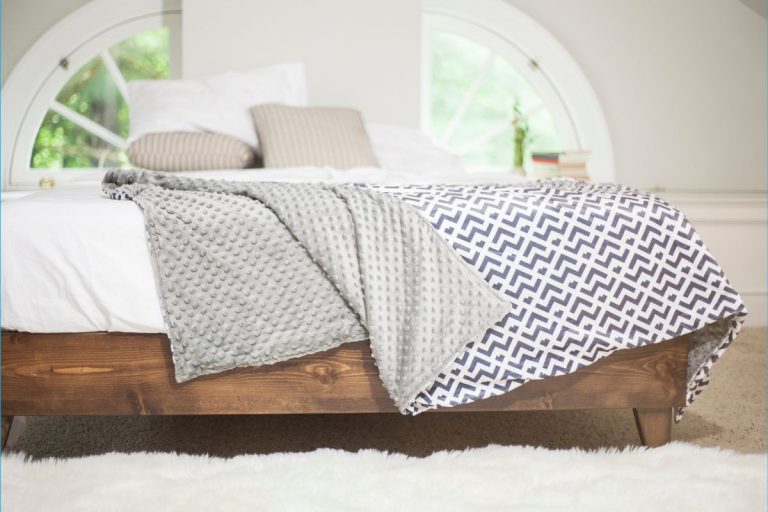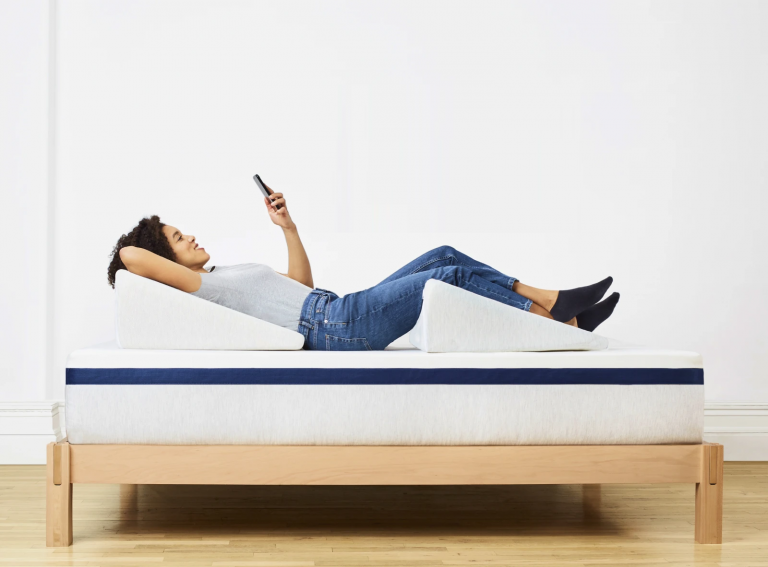Do you have a habit of sleeping late? If so, it turns out that this might be the reason you are breaking out.
Acne is a common, inflammatory skin disease that develops when hair follicles become clogged with dead cells and oil from the skin.
While this is a genetic condition for many people, there are things you can do to prevent it from getting worse. And getting enough sleep is one of them.
But it’s not the only reason your skin is acting up.
In this article, we will discuss if sleep habits can cause acne and what to do about it.
We will also give examples of how people’s lifestyles affect their skin health and review some products that can help improve your complexion!
How Sleeping Late Causes Acne
Increased oil production, hormonal fluctuations, heredity, an overly active sebaceous gland (oil gland), bacteria on the skin causes acne.
The breakouts are typically triggered by stress and worsened by having oily hair or wearing makeup. There are several home remedies for acne. And it’s not only about what you put on your skin; what goes in your mouth also affects your complexion.
Foods that increase chance of developing acne include dairy, fake sugars like aspartame and sucralose, processed food containing nitrates or nitrites that create nitrosamines, beef hormones found in meat that process into creatine that has been shown to increase problematic pimples under experimental conditions.
It is important to note that most of these ingredients can be found in organic foods. However, some people may not experience the same side effects by eating them; everyone’s body chemistry is unique.
Even though many factors play a role in acne development, lack of sleep makes it worse because your skin gets inflamed when you are tired.
When people are fatigued, their bodies produce more cortisol, which affects the production of insulin and other hormones that impact your complexion for the worse.
There is also some evidence suggesting that not enough sleep increases testosterone in women, leading to more breakouts on the chin area of the face, next to where men typically develop acne, too.
Another effect of poor sleep is the excess secretion of oil by the sebaceous glands. The oil clogs pores and leads to breakouts. Therefore, you should aim for at least seven hours of sleep every night in order to keep your skin clear.
Stress is another cause for acne. And stress is also a cause for poor sleep.
When you are stressed, your body releases cortisol that tells the sebaceous glands to produce more oil. Plus, cortisol makes it harder for us to fall asleep.
How Can You Treat Sleep-Related Acne?
There are several steps you can take in order to avoid this type of acne:
You should cleanse your skin thoroughly before you go to sleep so that any excess oil is removed.
It’s also important to use a gentle cleanser and avoid too much scrubbing or harsh exfoliating because this can irritate the skin even more.
You should take cool showers at night in order to close your pores, which will prevent them from getting clogged with excess oil.
Many people with acne scratch and pop their zits in the morning, but this is a bad idea. It will only worsen the situation by increasing inflammation and dead skin cells in that area of your face (which can lead to scarring)
Don’t use too many skincare products before you sleep because they will block the pores and make it harder for your skin to breathe at night. Also, avoid applying makeup during the day if possible.
Finally, consider taking a probiotic supplement in order to improve gut health, which can help keep breakouts under control.
There are several supplements that can help you out with skin issues like acne. You should then if your sleep is not enough to keep skin clear.
While this article focuses on the connection between poor sleep and various skin conditions, there are other factors which play a role in how healthy (or unhealthy) our complexions are: diet, stress, exercise.
Overall, it’s important to have a balanced lifestyle in order to maintain unblemished skin and good sleep patterns. If this isn’t possible or effective enough, there are other ways to prevent acne from showing up.
For example, you may try using an oil-free moisturizer with salicylic acid after washing your face in the morning and at night before going to bed. This ingredient is very effective for people who have oily skin because it helps get rid of excess sebum by penetrating deep into pores!
You could also incorporate the use of a face mask. These are great for reducing acne because they can get rid of dirt and other impurities that may cause your skin to break out. With regular use, you will start seeing an improvement in your complexion.
Sleeping Late Causes Acne: How to Improve
We spend about a third of our life sleeping. Yet, we don’t put enough effort into making sure our sleep is of excellent quality.
Since sleep and acne are intertwined, it’s important to ensure we get plenty of sleep at night.
Our lifestyle heavily affects our sleep. If we have a stressful lifestyle, it’s going to be harder for us to sleep because our body is too active. If this continues over time, the lack of sleep will cause acne and other skin conditions as well.
Getting high-quality sleep isn’t difficult. It’s a matter of creating good habits and sticking to them.
Here’s a list of what you should do.
1. Eat a healthy diet
Ever heard the saying “you are what you eat”? It’s very accurate. Eating lots of unhealthy foods causes us to be unhealthy.
When you eat fast food or drink alcohol, your skin will show the effects of it. Fatty foods are bad for acne because they cause our bodies to produce excess sebum, which clogs pores and leads to breakouts. The same applies when we consume too much dairy products or sugar.
And food affects our sleep as well. We won’t be able to sleep well if we eat too much right before going to bed.
That’s why you should always avoid eating fast food, junk food and other unhealthy options at night. Instead, make sure your diet comprises vegetables, fruits, protein (meat or fish) and healthy fats like olive oil or coconut/avocado oil.
Also Read: 14 Best Foods To Eat (And 8 Foods to Avoid ) Before Bed For Better Sleep
2. Exercise regularly
Did you know that lack of physical activity is one of the major causes of obesity?
When we are sedentary, our body isn’t capable of burning off excess fat. If this process continues over time, it will lead to weight gain and many other health problems, including acne.
Our bodies need to move in order for us to function properly. If we aren’t active enough, many health problems can occur–and acne is one of them.
3. Avoid caffeine after lunchtime
Caffeine is great. It boosts our productivity, helps us lose weight and makes us more alert.
But caffeine is also very addictive, so you have to be careful with your consumption of it. If not, you might end up having withdrawal symptoms like fatigue, irritability or even dark circles under the eyes.
And caffeine blocks our brain from producing Adenosine which is a sleep-inducing hormone. If you drink coffee, tea or soda drinks with caffeine late, there’s no way you’re going to be able to fall asleep at night.
4. Naps Are Ok, but Only before 5 PM
If you struggle to fall asleep at night, an afternoon nap could be a brilliant solution for you. Studies show that taking a 60-minute nap in the early part of our day helps us to feel more rested, and it also improves our cognitive abilities.
If you want to take a nap, try not too late because this will affect your sleep at night as well (and that’s the opposite of what we aim for).
5. Create a Bedtime Routine
You should treat your bed as a sacred place. And by this, I mean you shouldn’t use it to watch TV or drink alcohol because these activities will affect the quality of your sleep.
Instead, create a soothing nighttime routine which includes reading books and calming music before going to bed. You can also meditate or do some light stretching.
When you do this, your brain will associate the bed with sleep, which will make it easier for you to fall asleep at night.
You should avoid sleeping in on weekends since it will affect your regular sleep cycle and cause insomnia if done too often. Our body’s internal clock likes regularity.
6. Keep your bedroom dark and cold
We spend about a third of our life sleeping–so it makes sense that we want our bedroom to be ideal for sleeping.
One of the most important factors is darkness. If you have a bedroom with too much light, it will be harder for you to fall asleep at night because your body will still think that it’s day time.
The best thing would be to use thick blinds or curtains on your windows so no external light can enter our room. And if you live in a city with too much light pollution, try buying blackout curtains so that your room is pitch black when it’s nighttime.
The second thing to remember about your bedroom is the temperature.
The ideal temperature would be slightly below body temperature (around 18-20 Celsius). If it’s too hot or too cold, it will be harder for us to sleep well.
These are the simple things that you should do if you want to have a better night’s rest and avoid acne.
Also Read: What Is the Perfect Temperature for Sleep?
7. Limit your alcohol consumption
Alcohol disturbs sleep. How? It blocks Rapid Eye Movement (REM) sleep, which is the stage where we dream and actually have deep slept.
If you have a glass of wine or beer before going to bed, there’s no way that you’re going to dream–and your brain won’t get all it needs from sleeping.
Drinking alcohol can also upset our stomachs and cause acid reflux, which is the last thing we want before going to sleep.
8. Limit Screen Time Before Bed
Screens emit blue light, which is a wavelength that stimulates our brains and makes it difficult for us to fall asleep. This is because our brain will think it’s still daytime because of these blue lights.
So, if we make sleeping at night as important as eating healthy food or exercising regularly (which you should), then there’s no way we can spend hours in front of the TV before going to bed.
Also Read: How Electronics Affect Sleep: Blue Light, Melatonin, and Sleep
9. Take a warm bath
Warm bath before bed will make us more relaxed, which will help our bodies to release stress hormones.
This is great for preparing for sleep at night because it helps you feel drowsy and ready for bedtime. It’s especially good if your body feels tense or sore after exercising or sitting in front of the computer all day long!
Also Read: Hot Showers Vs. Cold Showers: The Benefits of Both Kinds of Showers
10. Put away all Worries and Problems before Bed
We all have those nights where we keep turning in bed and thinking about an issue plaguing our lives. Looking for solutions. And… not sleeping.
This is actually a massive problem for some people. They can’t enjoy a restful sleep because their brains go into overdrive and refuse to stop.
The best way to deal with this issue is to write down everything that’s stressing you out. This will let you unload your thoughts from the brain onto the paper. You should also write important things you don’t want to forget about, and make a to-do list for the upcoming day.
Sleep Medications: A Temporary Fix
It’s important to be mindful of your sleeping habits in relation to acne. For instance, if you sleep too late into the night, then that will cause acne by disrupting your circadian rhythm.
If you’re struggling with insomnia or poor sleep quality, then it’s worth considering taking medication. Research has also shown that certain medications may be useful for people with acne, including benzoyl peroxide and retinoids.
But medications come with their own issues. For instance, benzoyl peroxide can cause dryness and peeling skin. Retinoids irritate the skin, which will lead to redness or breakouts.
Plus, your body eventually gets used to them, which means going back to sleep without taking medications will become a challenge.
In case you are wondering which medications can be taken in order to improve your sleep, here is the list of options:
- Benzodiazepines or Z-drugs (temazepam, triazolam) – this help reduce stress and anxiety so that it’s easier for us to fall asleep. They work well but may cause side effects like irritability, drowsiness and memory loss.
- Barbiturates (phenobarbital) – these are effective as well but may be highly addictive, so it should only take them for a short period.
- Non-benzodiazepines (eszopiclone, zaleplon) – these have fewer side effects than the ones mentioned above.
Besides medications, you may consider acupuncture or herbal supplements.
Also Read: 5 Best Over the Counter Sleep Aids (And 3 Very Important Things to Know)
Conclusions
Sleep is the most important activity we do in our lives, and it affects our wellbeing. This includes our skin’s health. Skin is our biggest organ, so if we don’t sleep well, it’s going to show on our faces.
Sleeping less than seven hours a night is bad for your skin. However, the opposite isn’t true–getting more sleep won’t make acne go away.
This is because acne results from various factors. Poor sleep is one of the main ones, but poor diet and stress also affect our skin’s health.
What’s great is that these factors are intertwined. Which is also the worst part about the problem. If your life is stressful, you are more likely to eat junk food, which makes it more likely you sleep poorly.
Skin medications can help deal with the problem temporarily. But they get expensive in the long run, and acne is annoying to deal with 24/7. It’s best to address its root causes.
